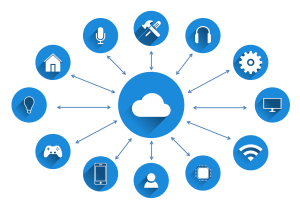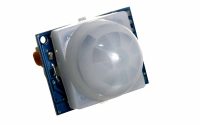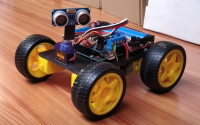Smart home automation
Smart home automation is the use of technology to control and automate various aspects of a home, such as lighting, heating and cooling, security, and appliances. With the rise of connected devices and the Internet of Things (IoT), smart home automation has become more accessible and affordable than ever before. In this blog post, we will explore the benefits of smart home automation and some of the most popular technologies that are currently available.

One of the key benefits of smart home automation is increased convenience. With the ability to control devices and appliances remotely, homeowners can manage their homes from anywhere, at any time. This is particularly useful for those who are away from home for extended periods of time and want to ensure that their home is secure and comfortable. For example, a homeowner can turn on their lights and adjust the temperature of their home from their smartphone, before they even arrive.
Another benefit of smart home automation is increased energy efficiency. Many smart home technologies are designed to be more energy efficient than traditional devices and appliances. For example, smart thermostats can learn a homeowner’s schedule and automatically adjust the temperature of their home to save energy. Smart lighting systems can also be programmed to turn off lights when not in use, further reducing energy consumption.
Smart home automation also provides increased security for homeowners. With the ability to monitor and control their home remotely, homeowners can be alerted to any unusual activity and take action if necessary. For example, a homeowner can receive a notification if a window or door is opened unexpectedly and use their smartphone to view a live stream of their home to determine if there is an intruder.
Smart home automation example
Smart heating and cooling systems can be programmed to maintain a comfortable temperature in the home, regardless of the weather outside. Smart security systems can also be programmed to turn on lights when a homeowner returns home in the dark, providing increased safety and security.
One of the critical components of a smart home automation system is the central control hub, which acts as the brain of the system. This hub allows homeowners to control and monitor all their connected devices and appliances from one central location. There are several options available on the market, including Amazon Echo, Google Home, Samsung SmartThings, and Apple Homekit.
In conclusion, smart home automation offers a wide range of benefits for homeowners, including increased convenience, energy efficiency, security, and comfort. With the continued growth of the IoT and the availability of affordable connected devices, smart home automation is becoming more accessible and easier to use than ever before. Whether you’re looking to increase the efficiency of your home or simply want to enjoy the convenience of being able to control your devices and appliances remotely, smart home automation is definitely worth considering.



